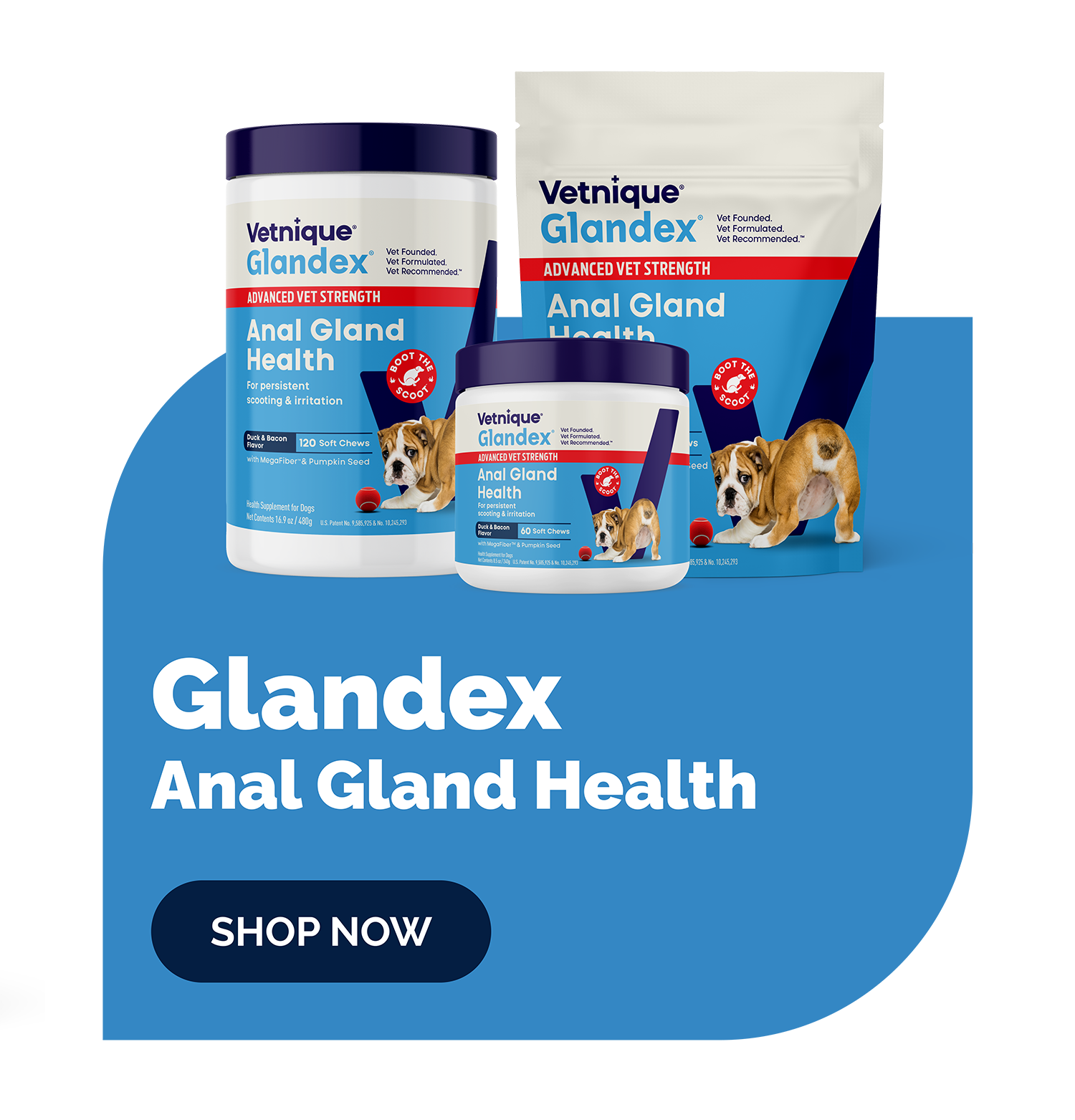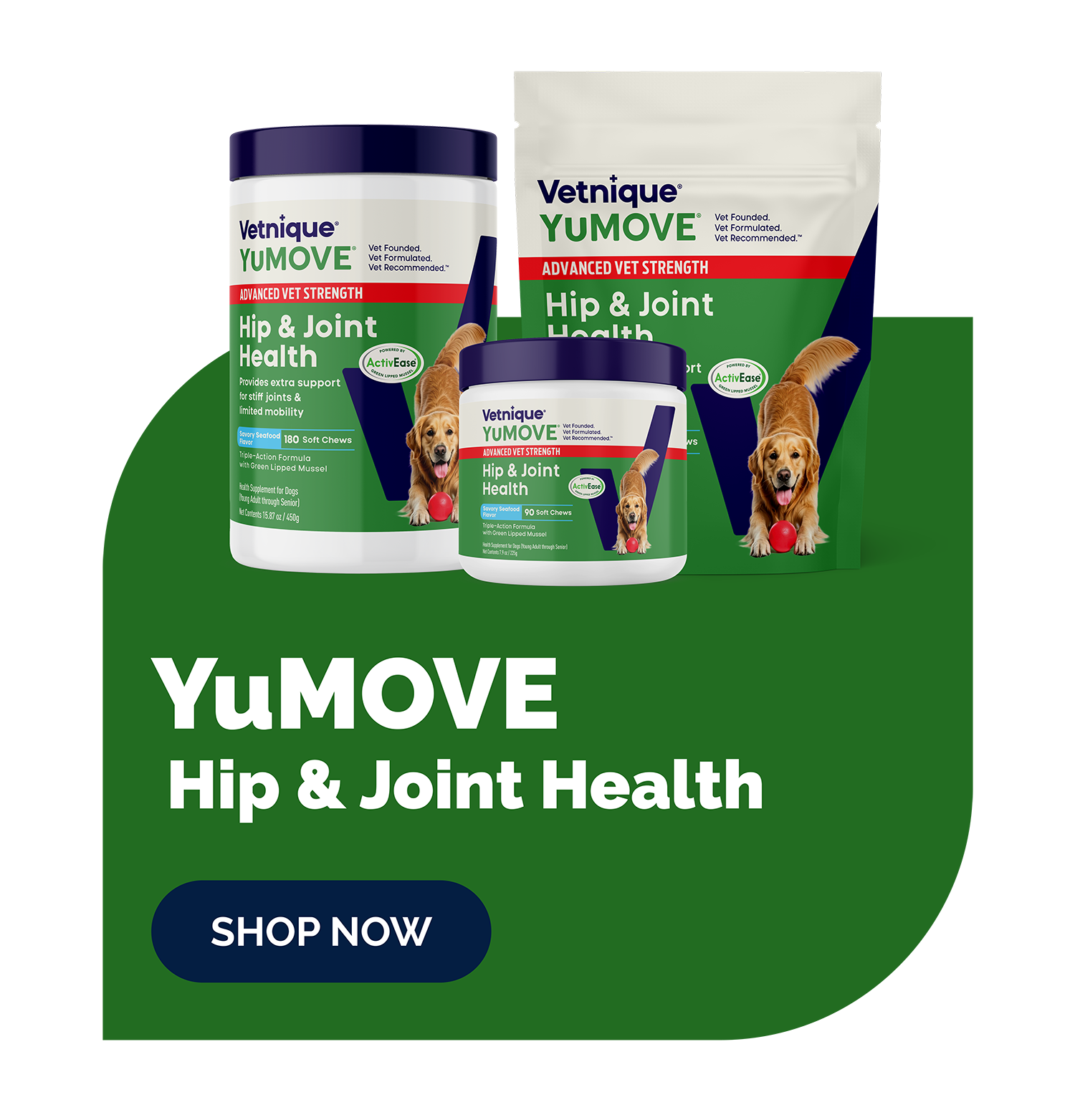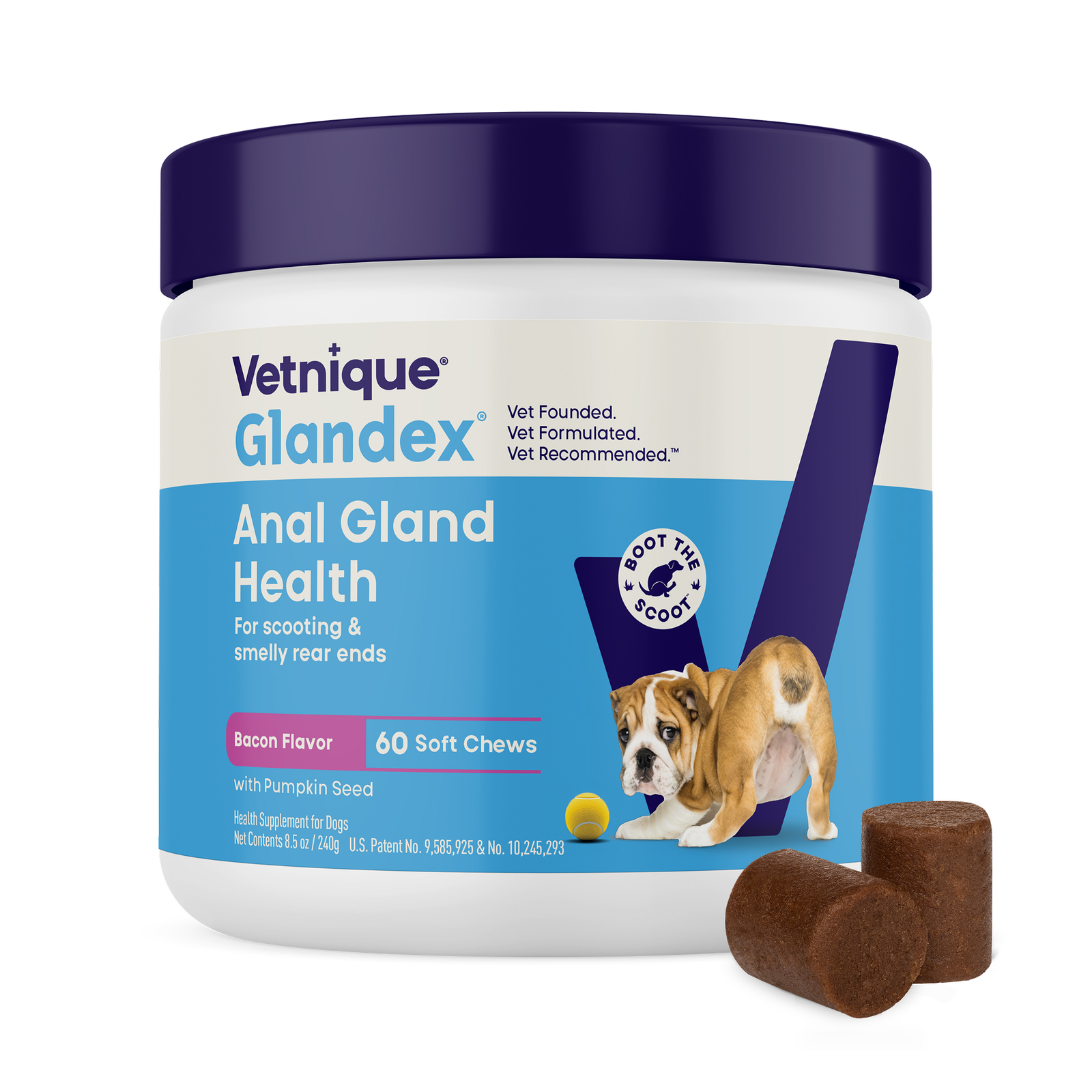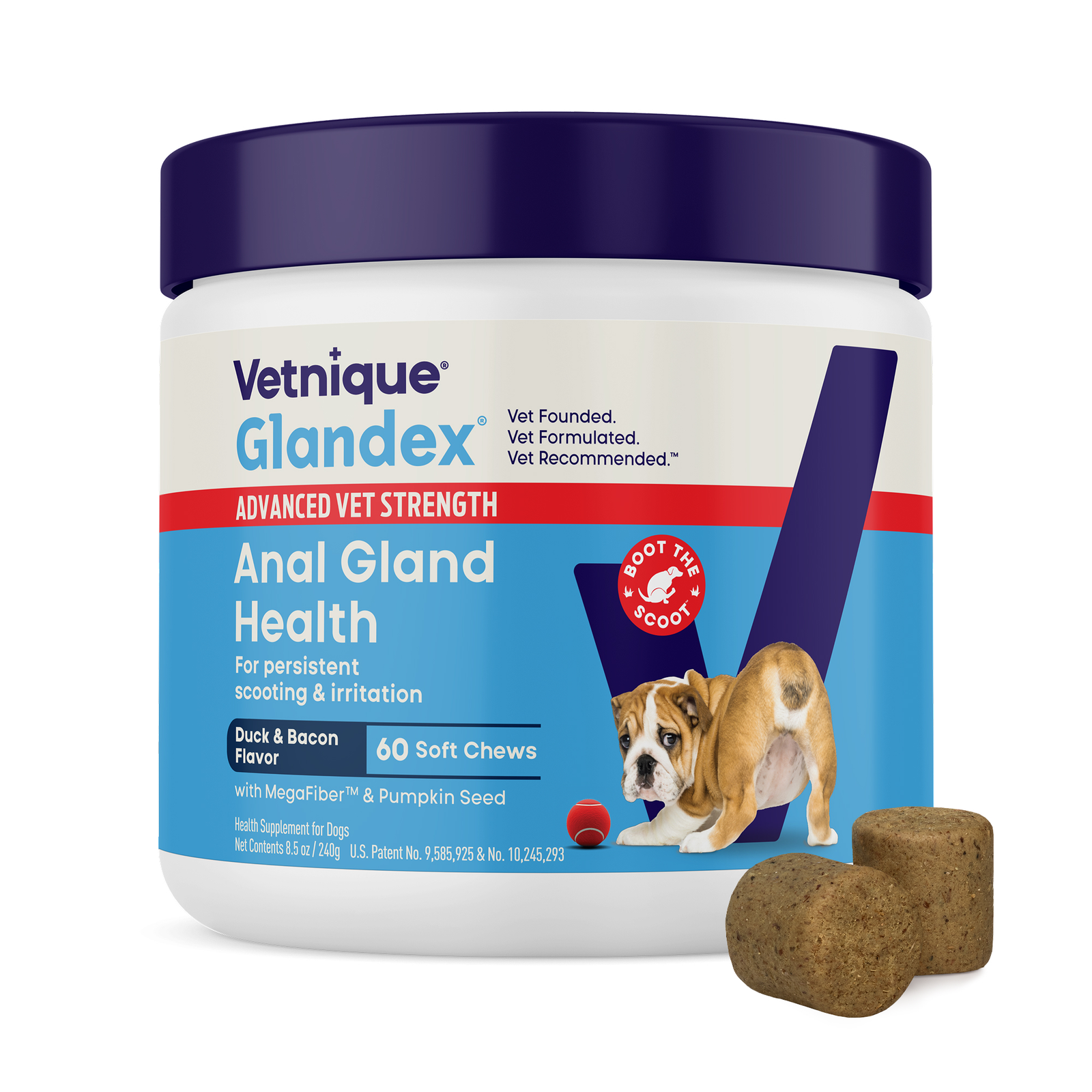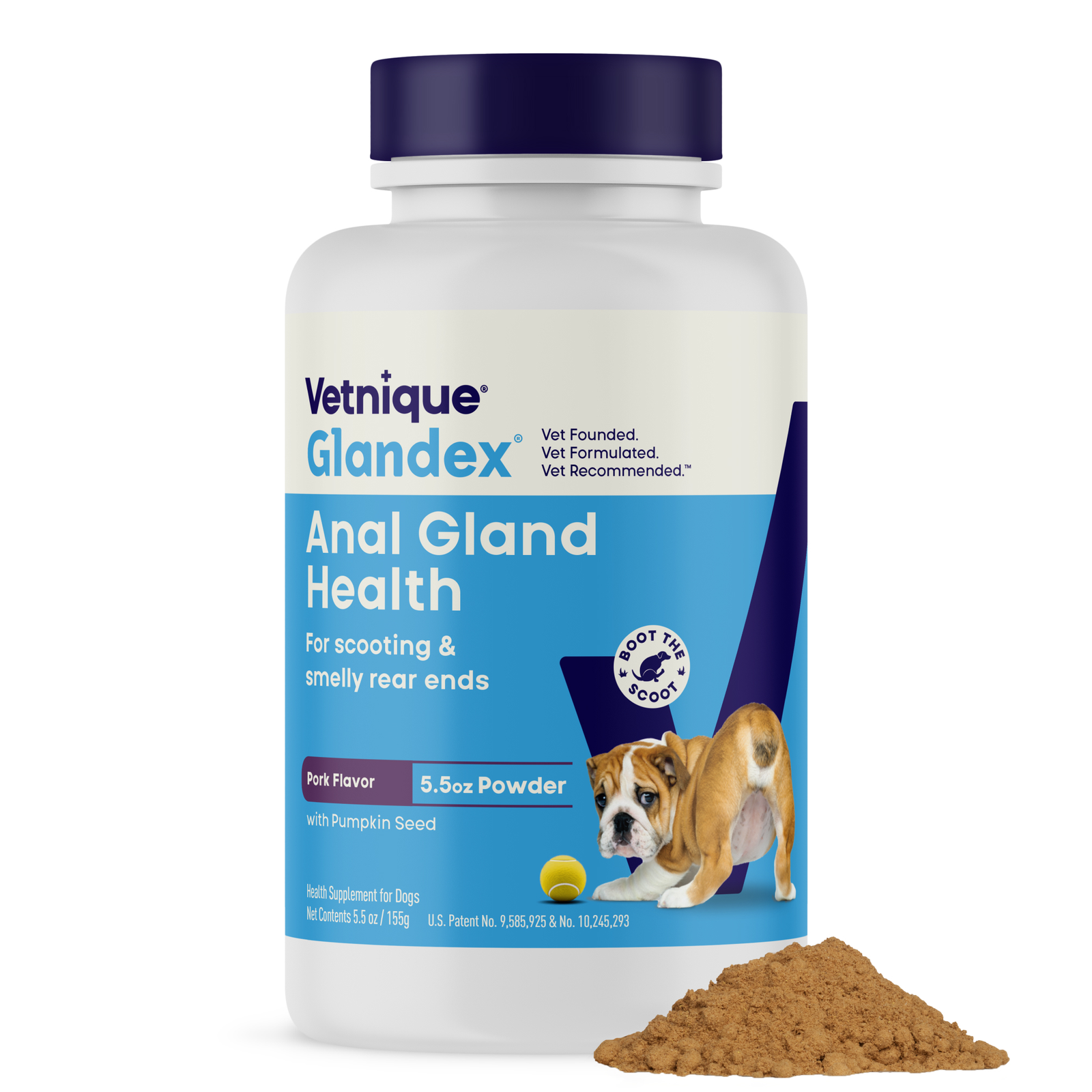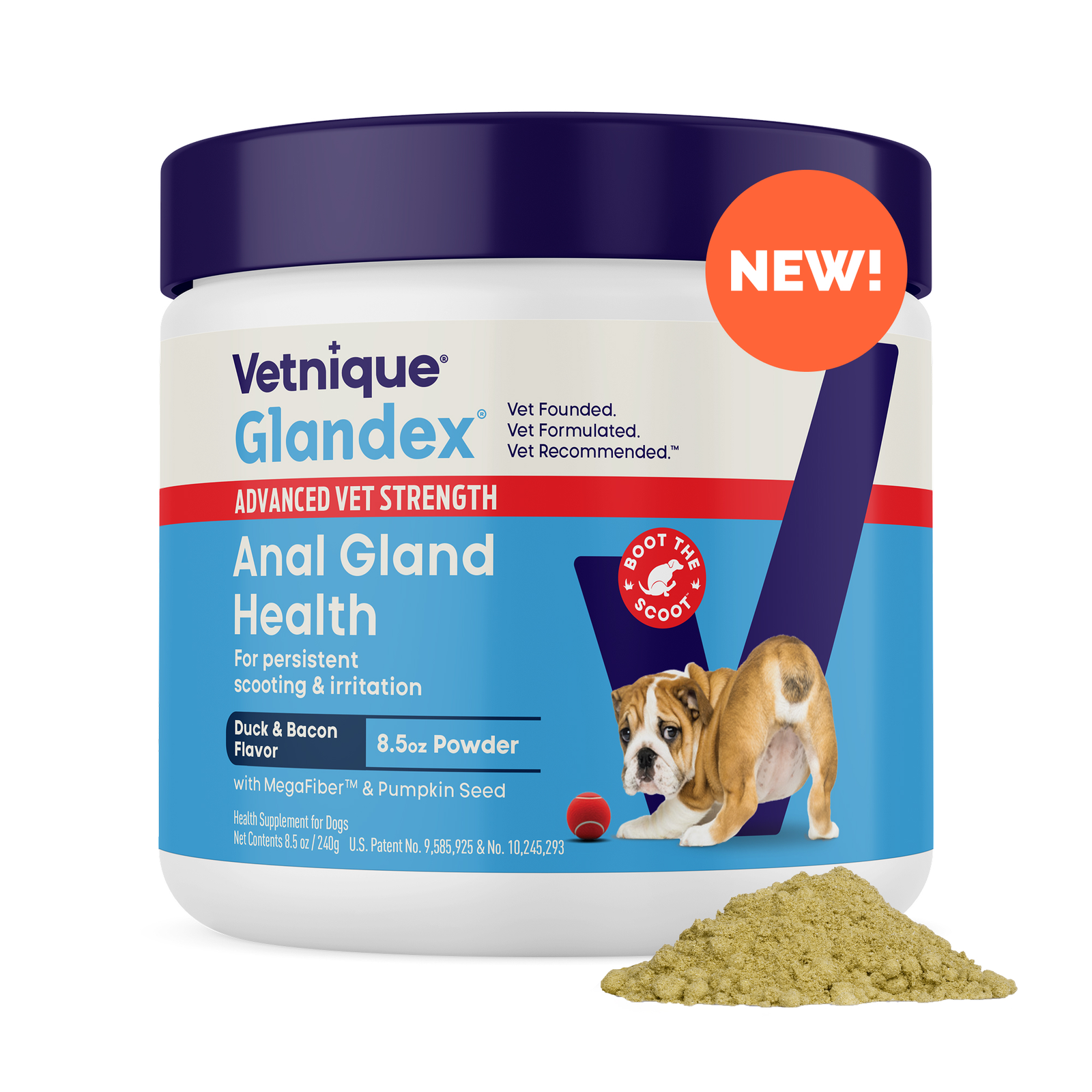
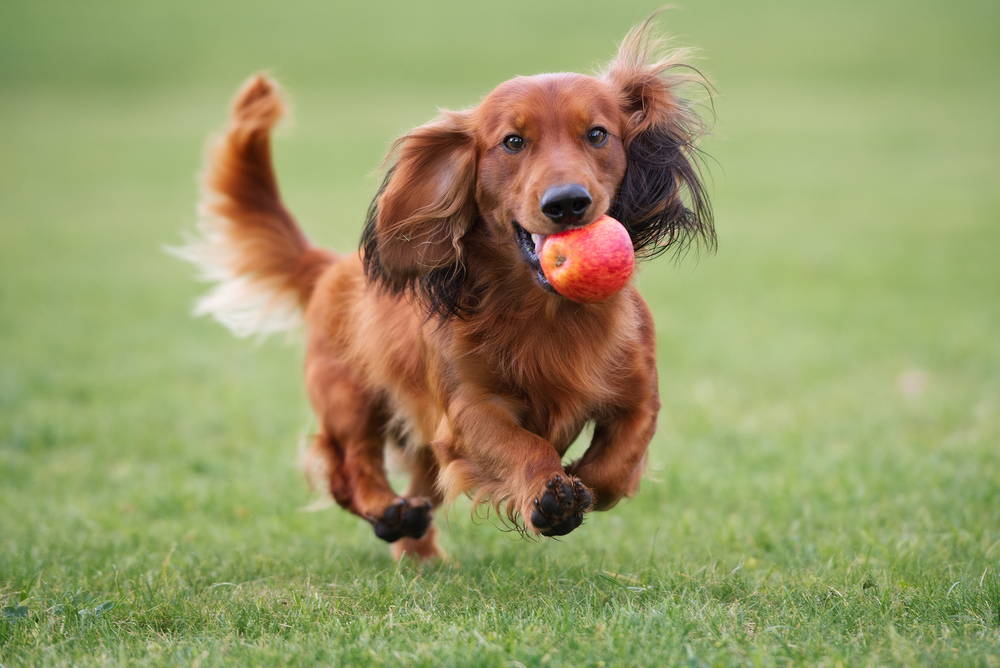
If you're looking for home remedies for dog scooting, the answer is simpler than you might think. Starting with your dog's diet–including meals and supplements–can be one of the most effective ways to manage your dog's anal gland health at home.
Using food to help dogs express glands is easy! Read on to discover the best food to help dogs express glands, including ingredients in supplements and healthy snacks.
Introduction to anal gland issues in dogs
Anal gland issues are a common concern for many pet parents with dogs. These glands, located near a dog's anus, can become filled with fluid and cause discomfort for your furry friend. Why do dogs anal glands fill up? It can happen for a variety of reasons, including diet, a sedentary lifestyle, obesity, genetics, and underlying health conditions.
How can you tell if your dog has issues with their anal glands? Look for signs like scooting, licking the rear end, and chewing under the tail. You may also notice a stinky odor from their rear end which may smell like fish. Chronic diarrhea can lead to anal gland impaction (plugged or 'full' anal glands that haven't emptied properly), while constipation or straining while having a bowel movement could be a warning sign that your dog's anal glands have already become impacted.
The importance of diet in managing anal gland health
The best dog food for anal gland issues–including diets and supplements–should include ingredients that support healthy anal gland function. A balanced diet plays a crucial role in your dog's health, including managing anal gland health and preventing issues like anal sacculitis (inflammation of the anal sacs).
The leading causes of anal gland impaction are small, insignificant bowel movements that aren't bulky enough to empty the anal glands as they pass through the rectum. Once the anal glands become impacted, anal sacculitis (inflammation of the anal glands) and, in untreated cases, anal gland infection can occur.
To prevent small bowel movements and bulk up your pet's stool, upping your dog's fiber intake is a great place to start. Talk with your veterinarian about the amount of fiber that's right for your dog, or follow the dosage instructions for an over the counter dog fiber supplement. You can also explore advanced fiber supplements for dogs if your dog has stubborn or recurring cases of anal gland impaction.
Top foods to help dogs express anal glands naturally
If you're interested in home remedies for dog scooting caused by anal gland issues, take a look at your dog's diet and try to identify what could be missing. Foods with dietary fiber, enzymes, probiotics, and prebiotics can have noticeable positive effects on anal gland health.
Wondering how to help dogs express glands naturally? The following foods are a great place to start:
Pumpkin
Pumpkin is a food that may help dogs express their glands naturally. It contains fiber, which promotes regular bowel movements and aids in natural expression of the anal glands. You can mix canned pumpkin (not pumpkin pie filling, which has added sugars) with your dog's food for added fiber.
Sweet Potato
Sweet potato is another excellent choice for dog food for anal glands. It's rich in prebiotics, fiber, vitamins, and minerals, providing overall digestive health benefits.
Apple
In addition to being a tasty snack for dogs, apples are also a great food to help dogs express glands. They contain pectin, a soluble fiber that supports healthy digestion and bowel movements.
Wheat Germ
Wheat germ is a concentrated source of fiber and essential nutrients like vitamin E. Adding a small amount to your dog's food can aid in how to help your dog express glands naturally. Be sure to ask your veterinarian for the proper dosage, as vitamin E can accumulate in the body and cause adverse effects if given in too high of a quantity.
Flaxseed
Flaxseed is a powerhouse of omega-3 fatty acids and fiber. It promotes gastrointestinal health and is one of the foods to help dogs express glands naturally.
Rice Bran
Rice bran is a gentle fiber source that can help regulate bowel movements, bulk your dog's stool, and assist in expressing the anal glands naturally.
Carrots
Carrots are crunchy, low-calorie snacks that can also be a beneficial dog food for anal glands. They're rich in fiber and promote healthy digestion.
Identifying dogs who benefit most from high-fiber foods
Certain dogs are more prone to anal gland issues and can benefit significantly from a diet rich in fiber. These include:
Dogs with Anal Gland Issues
Dogs with recurrent anal gland problems can benefit from fiber-rich foods.
Dogs with Colitis
Colitis, inflammation of the colon, can be managed with a high-fiber diet.
Dogs with Chronic Diarrhea
Fiber helps regulate bowel movements, aiding dogs with chronic diarrhea.
Dogs with Allergies
Some dogs with allergies may benefit from a diet focused on digestive health, including fiber-rich foods.
How fiber supports anal gland health
Fiber plays a crucial role in maintaining anal gland health by:
- Promoting regular bowel movements, which helps in expressing the glands naturally.
- Preventing constipation, which can lead to glandular issues.
- Supporting overall digestive health and reducing inflammation.
How supplements can help
In addition to catering your dog's diet for anal gland wellness, you can also consider using supplements specifically formulated to support anal gland health in dogs. Choose a formula that contains natural ingredients like pumpkin seed, omega fatty acids, and probiotics to promote healthy anal gland function every day.
If you notice more than just a stinky odor and scooting–such as a redness or swelling around the rear end–be sure to have your pet seen immediately at their veterinarian. This could indicate an abscess or infection is present which will require more treatment than diet or supplements alone.
A diet for anal glands rich in fiber and nutrients can go a long way in helping your dog express glands naturally and maintain overall digestive wellness. Incorporating these foods into your dog's meals can help them to express their glands, but consulting with your veterinarian is the best way to get personalized dietary recommendations for your unique pet.

